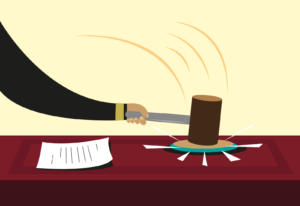Navigating The Startup Landscape
As an attorney who focuses on business and intellectual property (IP), I have had the opportunity to work with many startups that were seeking to bring their ideas to the world. Moving from an idea to a finished product can be a daunting prospect for any startup, however, it doesn’t have to be.
In this post, I will detail some important considerations for startups and founders and go over some of the legal challenges new ventures face. After reading, you will be better equipped to move your new project to the next step and to avoid the pitfalls of the unprepared.
Identifying your Legal Relationships
The first step in the startup process is to identify the legal relationships between you and the people with whom you intend to collaborate. Whether they are a developer, an artistic creator, or a salesperson, knowing how they will legally interact with you as you get your project off the ground is incredibly important.
Outlining this relationship in writing is even more important, as many people who become involved in a project will think they are part owners of the finished product, unless you clarify at the outset that they are not. Speaking to this point requires understanding the difference between a partner and an independent contractor. Since most startups don’t have employees at this early stage, we will address that topic later on. For now, let’s talk about partnerships.
Creating a Partnership
Unless specified otherwise, most people who form a business together are technically partners of some kind, even before they have formed a business entity like a Limited Liability Company (LLC) or a corporation. Legally speaking, forming a business partnership is a fairly simple process that can occur with conduct alone, and that can be dangerous and a later source of conflict. So, if you have a great idea, and you don’t intend to share it with the people who will help you along the way, the time to figure out who is in and who is not, is early on in the process. And it’s best to do it in writing.
That being said, to form a legal business partnership, all you need is two or more people carrying on like they are co-owners of a business for profit. This is true regardless of whether they intend to create a formal partnership or not.
Because a lot can happy between the time you start developing a product or service and actually forming a business entity, it is important that you have a written agreement that details the goals and understandings you have with your entrepreneurially intended. Later on, if you form a business entity like an LLC or a corporation, you can then roll your initial written understandings into a company operating agreement or a corporation’s bylaws. That is of course if you want them to be co-owners.
Collaborating with Independent Contractors
If you don’t want them to be co-owners, then the people you work with are probably just contributing to your project as an independent contractor, and you don’t want to accidentally create a partnership by missing the opportunity to clarify it in writing.
Independent contractors normally work on specific parts of projects with set deliverables. They work on their own time and with their own resources. They are free from your control or direction, as they are not employees. If you want a task done, you use them for the task, they complete it, the project is finished, and they go on their way. You do of course need to compensate them. And in the case of independent contractors this is usually done with a flat fee.
Specifying the scope of services to be performed by your independent contractors, the time for producing a deliverable, and setting forth payment obligations, is something that should be done in writing. In fact, if you intend to be the owner of whatever your independent contractor creates for you need to be clear on this in your written contract with them. This is where an independent contractor and work-for-hire agreement comes in. If you are collaborating with a web or software developer, a photographer, a product designer, or a writer you probably will need just such an agreement in place.
NDAs and Confidentiality
Whether thinking you are going to be partners, or already knowing you just want to hire someone as an independent contractor, it is important you use a robust Non-Disclosure and Confidentiality Agreement to protect the ideas and creations you have already. A well-crafted NDA can help protect your trade secrets and confidential business plans, even if you have yet to fully develop them as many startups have yet to do. The earlier you get someone to sign your NDA, the better.
The startup timeline starts to look like this:
- Identify Your Collaborators and Your Legal Relationships
- Sign your NDAs and Confidentiality Agreements
- Have detailed confidential conversations with your potential collaborators
- Sign your Partnership or Independent Contractor and Work for Hire Agreements
Developing Your Business Plan
You then can move on to developing and refining your business plan. Though many people start with this at the beginning, I find the more people you have involved in the project that can add value and help you craft a good business plan, the better it will be.
A good business plan identifies your business concept. This is different from your product or service idea. Just like it sounds, your business plan should be about your business, so you need to analyze the market for your creation, and the methods you have for reaching it. In it you will set a timeline of goals, guidance for making financial investments, financial projections, an operating plan, and details of your management team. A good business plan even lays out an exit strategy and the ultimate individual goals you have as the founder of the venture.
Your business plan should also earmark some financial resources for obtaining legal help to protect your intellectual property (IP). There are many ways to make money in a business venture, and most businesses make money by leveraging some aspect of their IP. This can be through licensing software to end users or by registering and protecting your trademark.
No matter what your IP is, it is important to make certain that whatever you bring to market does not infringe on the IP of anyone else. Clearance searches are an important tool your legal team will utilize to advise you on the ultimate legality of your brand.
The best time to get legal counsel involved is before you have invested a large sum of money and time in bringing a new brand to market. If you don’t find out your IP situation early, you could face liability later because you accidentally infringed on someone else’s IP. This infringement can cause your product to be removed from the market and shut down your startup dreams. Having a good business and IP attorney to collaborate with your business team early on is key.
Crafting Your Branding
Next let’s talk brand names. Brand names are the first thing consumers will see and they are usually the public face of your startup. Brands are best developed to answer the call of your business plan by attracting and enticing consumers with your inherent distinctions.
Your brand should be unique, appealing, and novel. Collaborating with your team to come up with a range of possible brand names is the best approach, rather than just running with your first pick. Select your favorites, see what fits, and then use your IP lawyer to determine what is legally possible. Some of the brand names you choose may be available, some may not. Once everything checks out with your brand(s), you can begin safely investing in the one (or more) you select.
The Beginning
With your idea, your collaborators, your initial agreements, your business plan, your legal counsel, and your brand name, you are ready to take the next steps in your startup. In an upcoming blog post, I will discuss business structures, where to register your business, employees, building your team, and investment agreements.
Stay tuned.

























